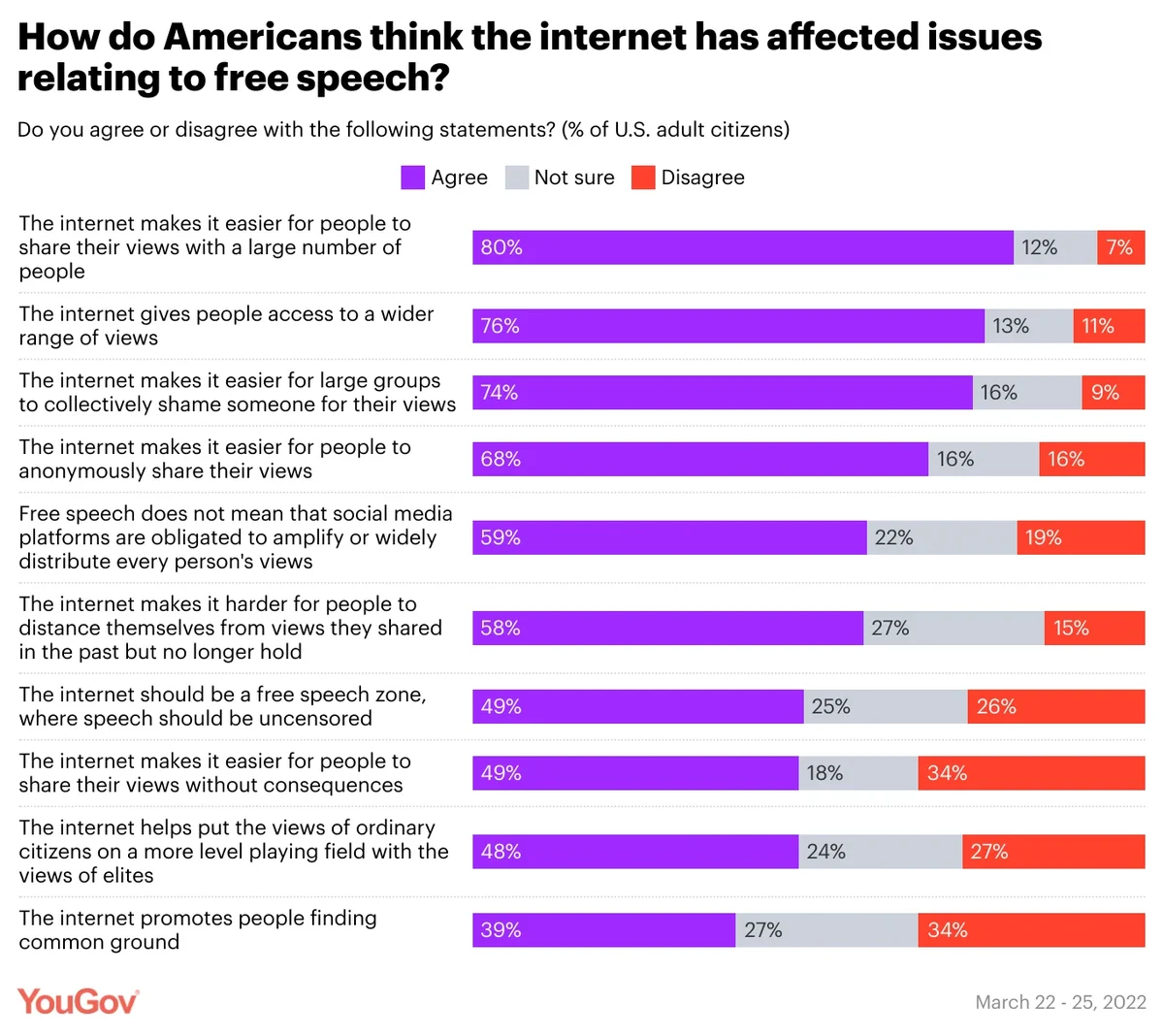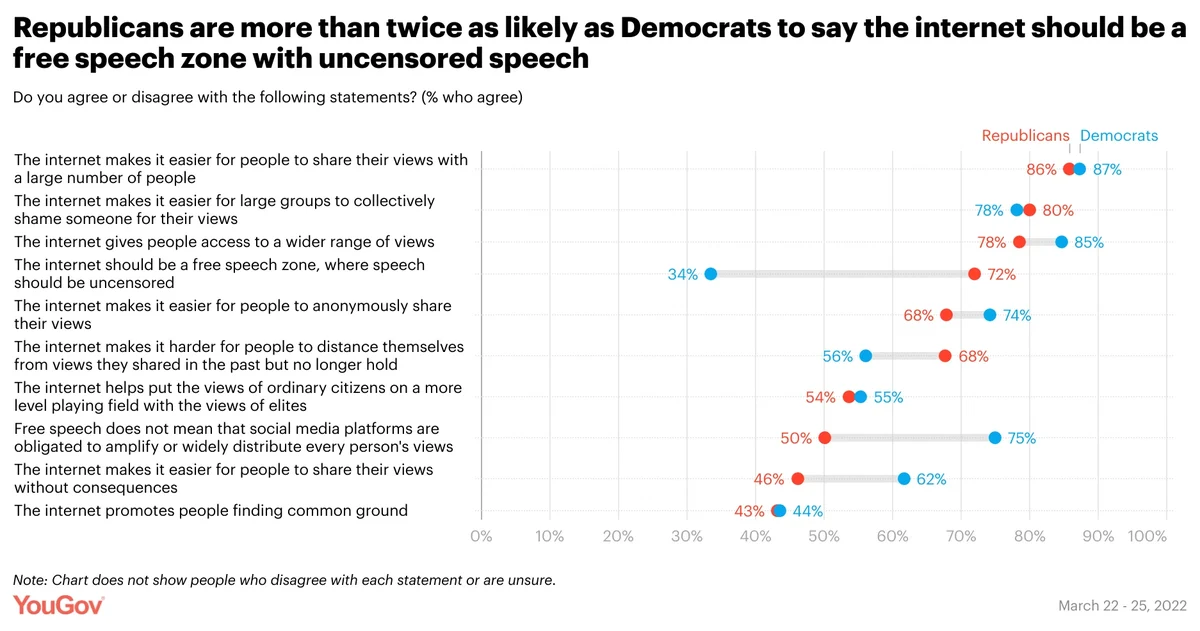In a recent poll, YouGov asked a sample of 1,000 U.S. adult citizens whether they agree or disagree with 10 statements relating to free speech and the internet. While there are drawbacks to agree/disagree-style questions, they can be useful for comparing attitudes among different groups (e.g., Republicans and Democrats), as well as across different questions.
Most Americans agree that the internet has made it easier for people to widely and anonymously share their views, and most also say it has increased access to a diverse range of views. Three in four people say that the internet makes it easier for large groups to collectively shame a person for their views, though about half also say that the internet makes it easier for people to share their views without consequences. Compared to the other questions, people are least likely to agree that the internet promotes finding common ground, or that the internet puts the views of ordinary people on a more level playing field with elites, though more people still agree than disagree with these statements.
In terms of partisan divides, we find that Republicans are more likely than Democrats to oppose online censorship and to believe that companies are obligated to amplify every person’s views. Republicans (72%) are more than twice as likely as Democrats (34%) to agree that “the internet should be a free speech zone, where speech should be uncensored.” While 75% of Democrats agree that “free speech does not mean that social media platforms are obligated to amplify or widely distribute every person’s views,” only 50% of Republicans say the same.


— Carl Bialik contributed to this article
This poll was conducted on March 22 - 25, 2022, among 1,000 U.S. adult citizens. Explore more on the methodology and data for this poll.
Image: Getty











